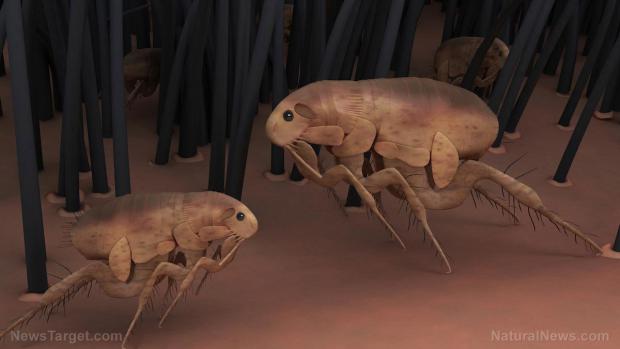
Breaking News
 Windows 11 QEMU/KVM Installation Guide in Linux Including TPM and Secure Boot
Windows 11 QEMU/KVM Installation Guide in Linux Including TPM and Secure Boot
 Silver: US Mint-Delays and Costco Limits Surface
Silver: US Mint-Delays and Costco Limits Surface
 Boots on the Ground...The news is getting worse so keep prepping.
Boots on the Ground...The news is getting worse so keep prepping.
 O'Keefe Media Group: Secret Service Agent Assigned to Vance Leaks Sensitive Information
O'Keefe Media Group: Secret Service Agent Assigned to Vance Leaks Sensitive Information
Top Tech News
 Superheat Unveils the H1: A Revolutionary Bitcoin-Mining Water Heater at CES 2026
Superheat Unveils the H1: A Revolutionary Bitcoin-Mining Water Heater at CES 2026
 World's most powerful hypergravity machine is 1,900X stronger than Earth
World's most powerful hypergravity machine is 1,900X stronger than Earth
 New battery idea gets lots of power out of unusual sulfur chemistry
New battery idea gets lots of power out of unusual sulfur chemistry
 Anti-Aging Drug Regrows Knee Cartilage in Major Breakthrough That Could End Knee Replacements
Anti-Aging Drug Regrows Knee Cartilage in Major Breakthrough That Could End Knee Replacements
 Scientists say recent advances in Quantum Entanglement...
Scientists say recent advances in Quantum Entanglement...
 Solid-State Batteries Are In 'Trailblazer' Mode. What's Holding Them Up?
Solid-State Batteries Are In 'Trailblazer' Mode. What's Holding Them Up?
 US Farmers Began Using Chemical Fertilizer After WW2. Comfrey Is a Natural Super Fertilizer
US Farmers Began Using Chemical Fertilizer After WW2. Comfrey Is a Natural Super Fertilizer
 Kawasaki's four-legged robot-horse vehicle is going into production
Kawasaki's four-legged robot-horse vehicle is going into production
 The First Production All-Solid-State Battery Is Here, And It Promises 5-Minute Charging
The First Production All-Solid-State Battery Is Here, And It Promises 5-Minute Charging
Natural remedies for keeping creepy crawlies off people, pets and livestock

(Natural News) Insect pests are some of the worst problems you'll encounter as a pet or livestock owner. While commercial insecticides are readily available, they can be harmful to the environment and your animals due to their chemical content. Fortunately, there are some natural remedies that can provide the same results without the damaging effects of synthetic insect repellents. (h/t to SurvivalSullivan.com.)
Hitchhikers
Most insect pests find their way into homes and onto animals by hitching a ride on your clothes or your pet's fur after you've enjoyed some time outdoors. If left unnoticed, these insects can multiply by the thousands and cause an annoying and potentially dangerous infestation.
Fleas are parasites that are dark brown or light golden brown in color, and can be as big as a sesame seed when filled with eggs. They're attracted to warm-blooded animals and feed on their blood. Fleas can easily become a problem in your home if they find their way inside, as they also go after human blood. Flea bites are known to cause anemia and tapeworms in the host. The secret behind controlling fleas is getting rid of their larvae and eggs.
Natural flea deterrents include essential oils, baking soda, lemon spray, and rosemary, to name a few. Plants such as pennyroyal, chrysanthemums, lavender and spearmint are also great options for keeping away fleas. Grow these in your home for additional natural insect repellents.
Ticks are small arachnids that are commonly found feeding off the blood of house pets; mainly dogs. They're most abundant from spring to late fall, but can be found all year long. It's crucial to do a thorough tick check on your clothing and body, as well as your pet's body after being outside, especially in heavy-wooded and tall-grassed areas. Ticks thrive best in warm temperatures; you can find most of them attached to the belly, head, or around the eyes of your pet.

 Storage doesn't get much cheaper than this
Storage doesn't get much cheaper than this

